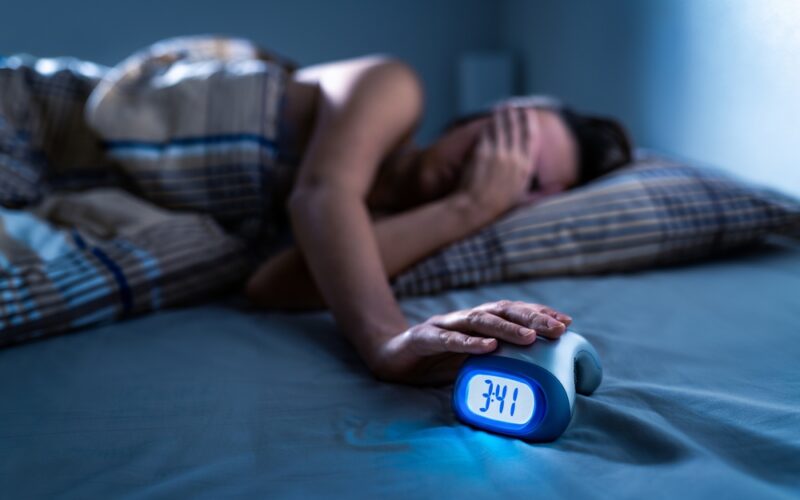Beta blockers effectively treat conditions like high blood pressure, heart arrhythmias, and anxiety, but many patients notice changes in their sleep patterns after starting these medications. Beta blockers and sleep disturbances can manifest as insomnia, unusual dreams, or reduced sleep quality.
Understanding how these medications affect your sleep can help you manage side effects while still benefiting from their therapeutic effects. From altered melatonin production to changes in REM sleep, beta blockers influence your night’s rest in several important ways.
How Do Beta Blockers Affect Sleep?
Beta blockers work by blocking adrenaline’s effects on beta-adrenergic receptors. While this action helps reduce blood pressure and heart rate, it can also interfere with natural sleep processes.
One significant way beta blockers affect sleep is through their impact on melatonin production. Melatonin, often called the “sleep hormone,” regulates your sleep-wake cycle. Beta blockers, particularly non-selective ones that block multiple types of beta receptors, can suppress melatonin release from the pineal gland, delaying sleep onset and reducing sleep quality.
This melatonin suppression helps explain why beta blockers cause insomnia in some individuals. Without sufficient melatonin, your body struggles to recognize when it’s time to sleep. This effect is often more pronounced when beta blockers are taken later in the day.
Beta blockers can also prevent your body’s natural nighttime drop in blood pressure and heart rate, keeping you in a slightly more aroused state that’s less conducive to deep, restorative sleep. This can lead to daytime fatigue despite apparently adequate sleep hours, as the medication affects different sleep stages, particularly REM sleep.
Why Do Beta Blockers Cause Vivid Dreams and Nightmares?
Many patients report experiencing beta blockers vivid dreams and nightmares. These can range from more detailed dreams to disturbing nightmares that may cause some to consider discontinuing medication.
The connection between beta blockers and nightmares relates to how these medications affect REM (Rapid Eye Movement) sleep. How beta blockers affect REM sleep is complex – research suggests they may increase time spent in REM sleep or alter normal sleep stage progression, providing more opportunity for dreaming and potentially making dreams more intense.
Another theory involves how beta blockers influence physiological responses during dreams. During nightmares, your body would typically respond with increased heart rate and blood pressure. Beta blockers prevent these physical stress responses, potentially creating a disconnect between frightening dream content and physical reactions that makes dreams seem more vivid or disturbing.
The type of beta blocker matters too. Lipophilic (fat-soluble) beta blockers like propranolol can cross the blood-brain barrier more easily than hydrophilic (water-soluble) ones like atenolol, potentially causing more pronounced dream disturbances.
Who Is Most Affected by Beta Blockers and Sleep Issues?
Certain individuals are more susceptible to sleep disturbances from beta blockers:
Older adults often experience more pronounced sleep disruptions, possibly due to age-related changes in medication metabolism or natural sleep architecture. People with existing sleep disorders may find beta blockers worsen their conditions. Evening dosing typically increases the likelihood of sleep disturbances compared to morning dosing.
Combining beta blockers with other medications that affect sleep, compete for the same metabolic pathways, or impact melatonin production can exacerbate sleep issues.
How to Improve Sleep While Taking Beta Blockers
Several strategies can help improve sleep quality while continuing this important medication.
How to sleep better on beta blockers often starts with medication timing. Taking your beta blocker earlier in the day (with your doctor’s approval) allows its melatonin-suppressing effects to diminish by bedtime.
Optimizing your sleep environment can counteract some disruptions: maintain a cool, dark bedroom; establish a consistent sleep schedule; limit evening screen time; avoid caffeine and alcohol; and develop relaxing bedtime routines.
For those experiencing significant melatonin suppression, melatonin supplements (typically 1-3 mg taken 1-2 hours before bedtime) may help improve sleep onset. Always consult your healthcare provider before starting any supplement.
For vivid dreams or nightmares, consider these strategies: practice stress reduction techniques before bed; avoid emotionally stimulating content before sleep; maintain a dream journal; and discuss with your doctor whether switching to a more hydrophilic beta blocker might help.
In some cases, your healthcare provider might consider changing your prescription to a more selective beta blocker or an alternative medication. Never adjust your beta blocker dosage without medical supervision, as this can lead to dangerous rebound effects.
Conclusion
Beta blockers impact sleep and dreams through their effects on melatonin production, REM sleep, and physiological fluctuations during rest. While insomnia, vivid dreams, and sleep disruptions are common side effects, they don’t necessarily require discontinuing this valuable medication.
By understanding how beta blockers affect sleep, you can work with your healthcare provider to develop effective management strategies. Adjusting medication timing, improving sleep hygiene, considering melatonin supplementation, and exploring alternative medications are all viable approaches.
If you’re struggling with sleep disturbances while taking beta blockers, consulting with a healthcare provider through Heally can help you develop a personalized plan to improve your sleep quality while maintaining the benefits of your medication.
Sources
American Journal of Medicine: Beta-Blockers as a Cause of Violent Rapid Eye Movement Sleep Behavior Disorder: A Poorly Recognized but Common Cause of Violent Parasomnias
Heart.org: Beta-blockers not likely to cause depression yet may contribute to sleep disturbances
Respiratory Therapy: Beta Blockers May Contribute to Insomnia, Sleep Disturbances
Book Free Consultation
Book Free Consultation

